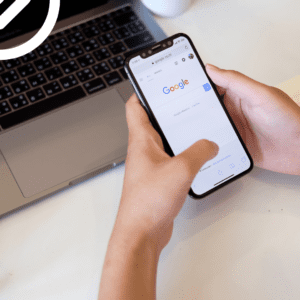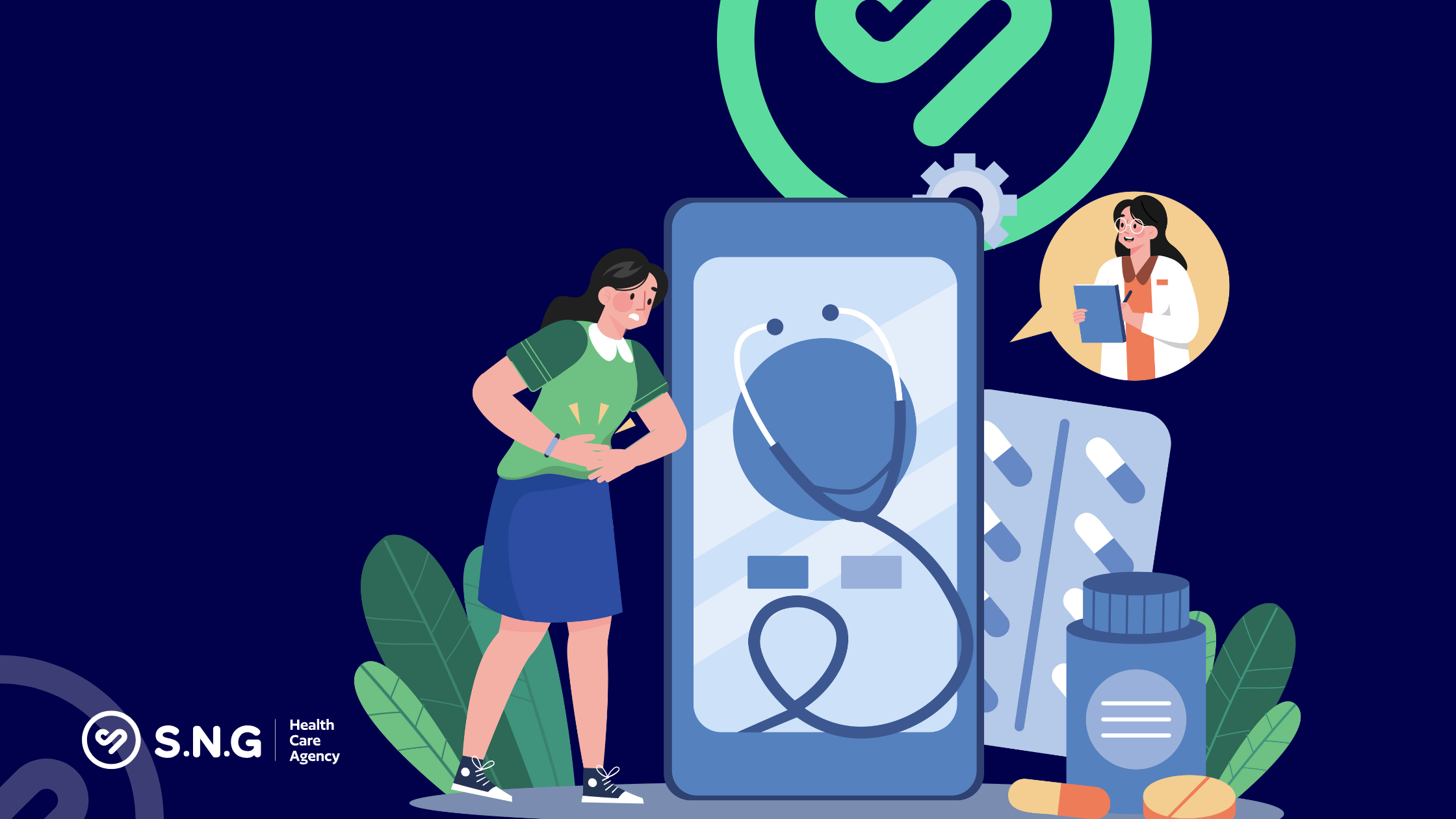Long NHS wait times and staff shortages have lead more people to seek medical advice from AI tools and search engines instead of waiting for a doctor’s appointment. It’s increasingly common toturn to “Dr. Google” or ask ChatGPT about symptoms when faced with delays in getting healthcare. This growing trend might save time for patients, but it also raises important questions. How accurate is this AI-powered advice? And what does this shift mean for healthcare professionals on the front lines; from GPs and nurses to support workers and care home staff?
Many individuals now grab their smartphones or laptops at the first sign of a cough or ache (or gout – in the case of my recently hopping father), hoping for quick answers online. A recent study by Benenden Health highlighted just how common the “Dr. Google” habit has become: people in the UK consulted Google for health issues nearly 50 million times in one year. The appeal is understandable: within seconds, AI can present possible causes or remedies. For people frustrated by long waits to see a doctor, the internet offers instant information 24/7 (Beneden). This instant access is changing how people approach their health – but as we’ll discuss, it comes with both advantages and drawbacks.
The Pros
There are several advantages driving people to use AI chatbots and search engines for health information:
- Instant Information: Instead of waiting days or weeks for a GP appointment, anyone can get immediate answers to basic health questions. This saves time and can provide quick relief for minor concerns.
- Better Understanding of Symptoms: AI tools like ChatGPT can explain possible reasons for symptoms in plain language. This general guidance helps people learn about potential conditions or whether they might need urgent care. For instance, a person worried about a common cold vs. flu can ask an AI and get educational info that a support worker or nurse might otherwise have to spend time explaining.
- Streamlining Basic Inquiries: By handling simple questions (e.g. “How do I treat a mild burn?”), AI chatbots might reduce the load on healthcare staff. Users can get advice on first-aid or over-the-counter remedies, which means nurses and support workers can focus on more serious cases. In a busy care home, if residents use trusted online resources for minor issues, the care team and managers could save time on frequent basic queries.
The Cons
Despite the benefits, relying on AI and Google for medical advice also has significant drawbacks and risks:
- Inaccurate or Incomplete Information: AI-generated responses can sometimes be wrong or misleading. Search engines may return outdated or non-expert advice. This raises the danger of misdiagnosis; a chatbot might suggest a harmless cause when something serious is wrong, or vice versa (buhr et al.). Without a proper medical examination, there’s no guarantee the information fits the person’s actual condition.
- Panic and False Alarms: Self-diagnosis via “Dr. Google” can easily lead to unnecessary panic. We’ve all heard of people who search a headache and end up convinced it’s a brain tumour. When AI or search results list every possible illness, users might assume the worst. This anxiety (sometimes called “cyberchondria”) can result in people trying unneeded treatments or losing sleep over unlikely diseases.
- No Human Empathy or Context: One thing AI lacks is the human touch. Healthcare professionals don’t just diagnose – they ask follow-up questions, notice subtle symptoms, and provide comfort. An algorithm won’t hear the wheeze in a patient’s breath or see the rash that looks “not quite right.” Nor can a chatbot offer empathy and reassurance the way a seasoned nurse or a care home support worker can. The nuanced judgment gained from years of experience is hard to replicate. This means AI might give generic advice, whereas a doctor or registered manager could tailor guidance to the individual (taking into account their medical history, medications, and overall condition).

Concerns from Healthcare Professionals
Healthcare professionals have voiced concerns about the rise of AI self-diagnosis, especially regarding accuracy and misinformation. They caution that while online searches are convenient, they often replace a proper consultation with a pharmacist or GP. As Cheryl Lythgoe, a Matron at Benenden Health, noted, an over-reliance on Google for health info can easily lead to “an incorrect self-diagnosis or panic” (Beneden). In other words, misinformation online can cause real harm if someone skips needed treatment or starts to worry excessively due to what they read on a screen.
Professionals are also examining how well AI like ChatGPT actually performs when giving medical advice. Interestingly, a 2023 study in the Journal of Medical Internet Research put ChatGPT’s answers to the test against answers from real doctors. The result? ChatGPT could certainly talk a lot – its answers were longer – but they weren’t as medically accurate or concise as the real consultants’ answers. The study concluded that using a chatbot as a medical consultant carries a “high risk of misinformation” because the AI’s response might sound confident and coherent even when it’s off-base (buhr et al.).
In practice, this means an AI might give advice that seems legit but is missing important context or nuance that a human doctor or nurse would catch. Healthcare experts are urging caution: they remind us that these tools, while promising, are not yet a substitute for professional medical judgement.
Despite the growing role of AI in healthcare, it’s clear that chatbots and search engines cannot replace human healthcare professionals. Tools like ChatGPT and Google can be helpful for quick knowledge; they’re great for educating patients about minor issues or suggesting when to seek care. However, they should be used with caution and never as a final authority.
If symptoms are severe, persistent, or worrisome, the best course is still to consult a real doctor or nurse. AI can support our healthcare system, but it works best as a supplement to, not a replacement for, professional advice.
In care homes and hospitals, the value of human staff remains irreplaceable. Support workers, nurses, and care managers bring compassion, critical thinking, and first-hand experience that no algorithm can match. They can comfort a worried resident, distinguish between similar symptoms, and make judgment calls in emergencies. The human touch in healthcare – a reassuring voice, a caring hand on your shoulder, an expert assessing your unique situation – is something even the smartest AI cannot provide. So while we embrace these new technologies, we should do so wisely. Use Dr. Google or ChatGPT as a handy starting point, but trust the healthcare heroes (the doctors, nurses, support workers, and other professionals) to provide the care and empathy that keep us truly healthy.
If you are looking to grow your human healthcare team, or looking to join one, reach out to us here.
Sources
- https://www.benenden.co.uk/newsroom/brits-consulted-dr-google-nearly-50-million-times-last-year/#:~:text=Brits%20consulted%20%E2%80%98Dr,mutual%20healthcare%20provider%2C%20Benenden%20Health
- https://mededu.jmir.org/2023/1/e49183/

